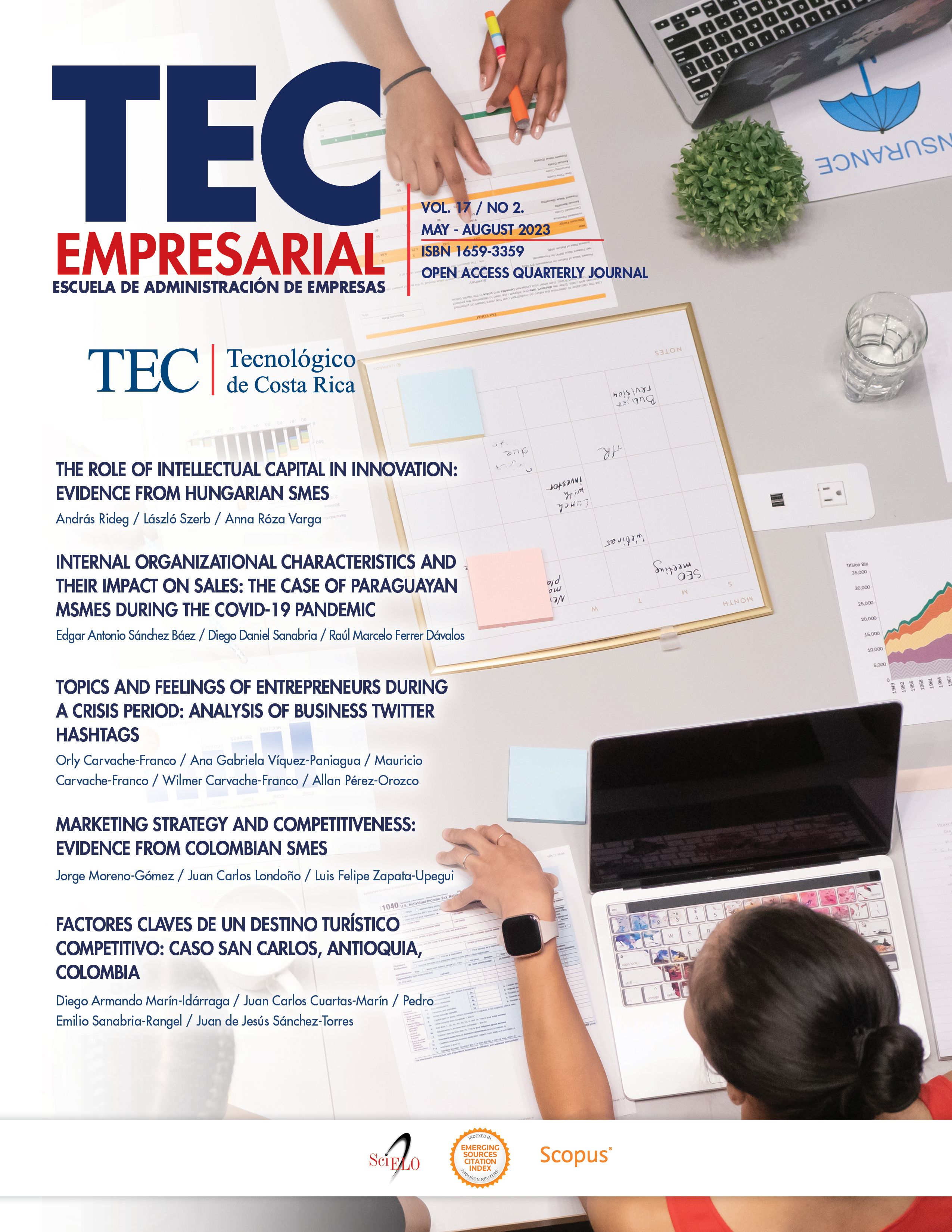The role of intellectual capital on innovation: Evidence from Hungarian SMEs
Main Article Content
Abstract
This study investigates the relationship between intellectual capital components and innovation on a sample of 1243 Hungarian small and medium sized enterprises (SMEs) drawn from the Global Competitiveness Project (GCP). The results of the logistic regressions reveal a significantly positive effect of structural capital and relational capital on innovation, whereas the impact of human capital is not significant. The results show the importance for entrepreneurs of strengthening intellectual capital in order to increase SMEs innovation, and advise policymakers on how to mobilize support schemes for the renewal of SMEs with low individual but high collective innovation potential. Instead of examining large enterprises and startups, the novelty of the study relies on the analysis of the connections between intellectual capital components and innovation in the context of mature Hungarian SMEs.
Article Details
The digital version of the journal is registered under the BY-NC-ND 4.0 Creative Commons license. Therefore, this work may be copy and redistribute the material in any medium or format, as long as you give appropriate credit, provide a link to the license, and indicate if changes were made. You may do so in any reasonable manner, but not in any way that suggests the licensor endorses you or your use.
The authors keep the copyright and give the journal the right of the first publication and the possibility of editing, reproducing, distributing, exhibiting and communicating in the country and abroad through printed and electronic means. On the other hand, the author declares to assume the commitment on any litigation or claim related to the rights of intellectual property, exonerating of responsibility to the Business School of the Costa Rica Institute of Technology.


